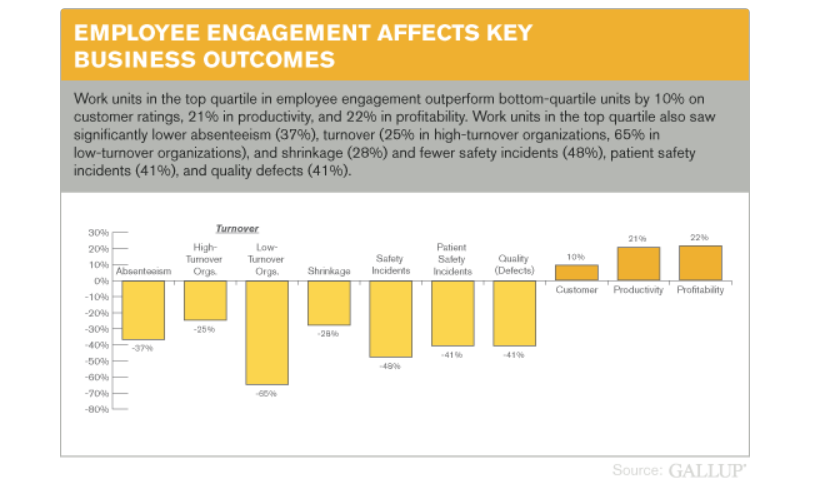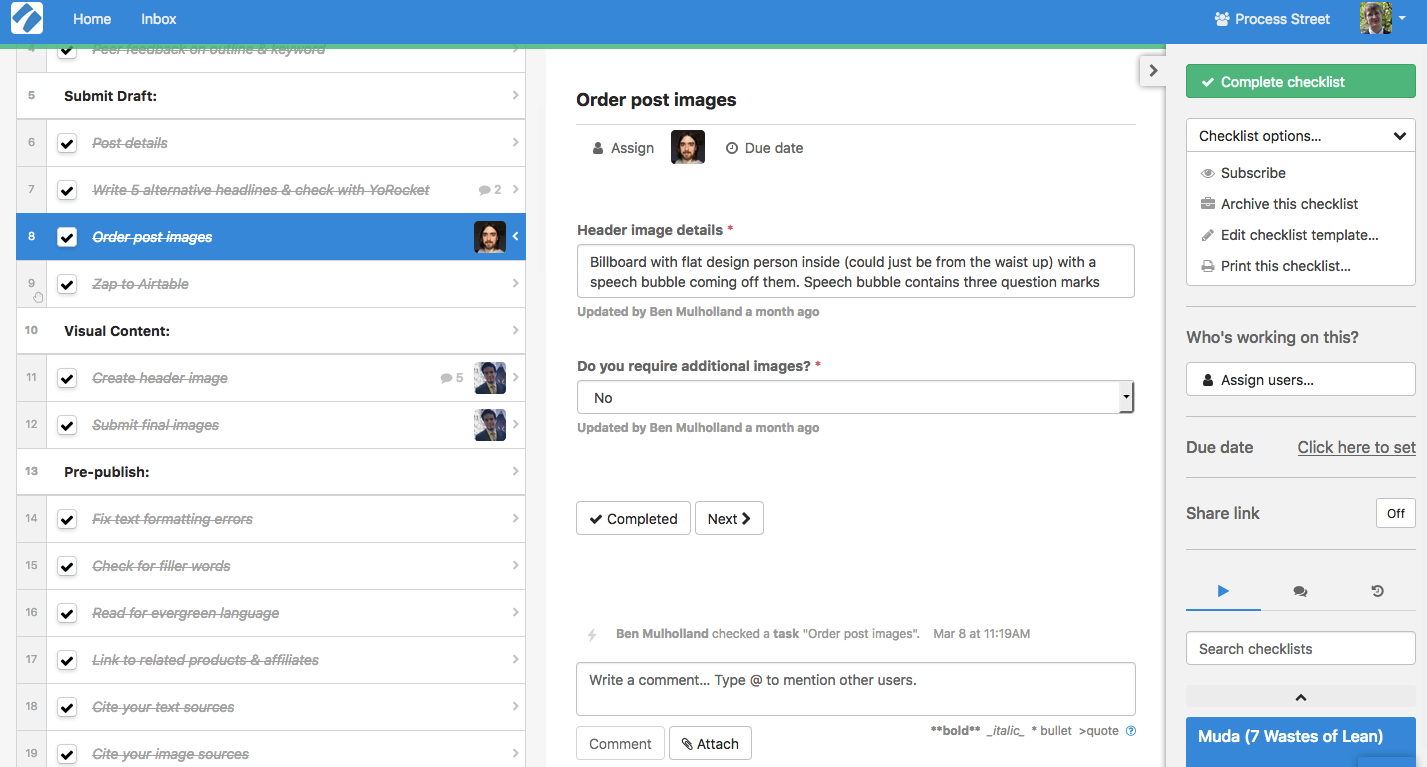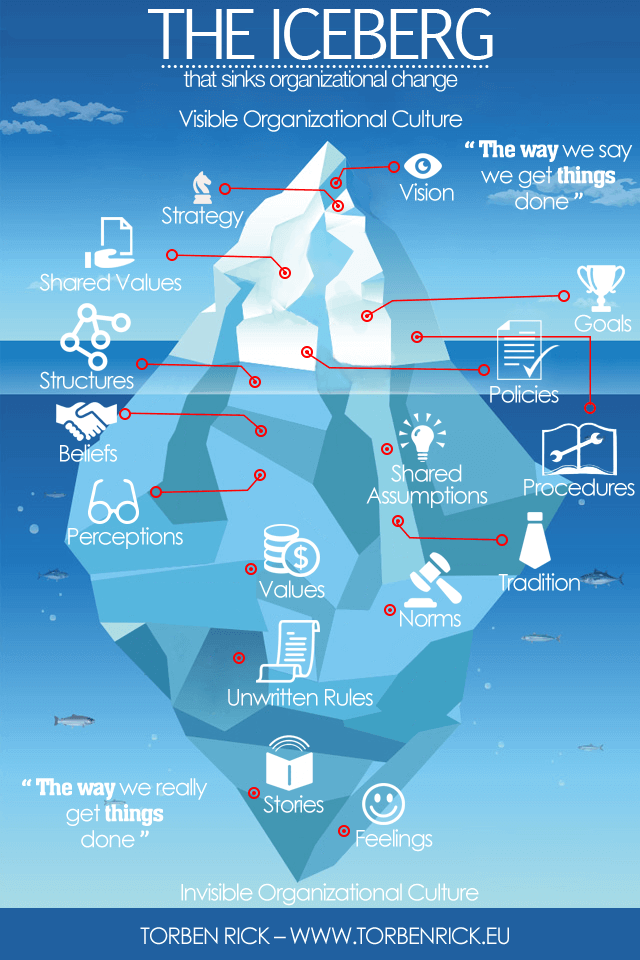
This is a guest post by David Miller, a technical writer & edu-tech enthusiast currently pursuing research in project management software. You can find him on Twitter, or writing for the ProProfs Project.
If I ask you to select a few colleagues in your company and take a survey of how well they understand their company’s culture, how do you think they’d score?
Not so sure?
Now, think about remote teams.
Teams you don’t even talk on a regular basis – how sure are you that they know your company’s values or culture?
Let’s take an example.
According to a PMI study, 83% of respondents spend at least an hour or two working remotely every day. Among which the percentage of remote employees stand at:
- 47% – Business Owners
- 47% – Managers
- 50% – Executives
- 36% – Team Members
Now, as you can see that most upper-management employees are usually working remotely with the company, and if they themselves don’t possess a firm grasp on company culture – how will they pass it on to their team members?
Usually, remote team members are simply assigned tasks with a due date and it is all professional.
But, what most companies don’t realize is that it is really crucial for everyone who is part of a company to understand their values and culture.
Why?
Because it is believed that the only purpose of hiring a remote team is to get the work done on time.
But, that is not the case.
Most project managers tend to lose track of the fact that even remote teams represent the organization they work with and being affiliated with an organization is enough to follow their culture, rules, regulations, and procedures to the book.
Just look at the statistics presented in this Deloitte study graphic:

Whether you are a full-time or remote employee of a company, you represent them wherever you go. In addition to that, you can only work in a team efficiently if every single one understands the company’s culture and values.
So how do you instill your company’s culture in remote teams? In this article I’ll cover 5 out of the box ideas to help you bolster your team’s sense of company culture, including.
Managing a remote team: Major challenges
Working with remote teams is always a challenge for project managers as they have to be responsible for making sure the values and principles of the company culture are upheld. The processes, their efficiency, and quality all need to be carefully considered from start to finish.
So, what are some of the major challenges faced when working with remote teams?
Communication
Communication is a cornerstone of any remote team environment. It is the pillar upon which all else rests – without good communication, nothing else will work.
This is true for any organization, but especially so for remote teams because it is the engine that drives any and all activity within the company.
While management should spearhead the initiative to implement and continuously improve communications protocols, the whole organization should ideally be involved in this decision-making process, and on a regular basis.
Does the team feel the current communication channels are adequate? How might things be improved? Would this app be superior to our current choice? These are the kinds of questions that should be commonplace when discussing communications policies and procedures.
Research by Gallup indicates that employees who feel more engaged are 21% more productive, while the other 73% of disengaged employees are actively looking for a new job, compared with just 37% of engaged employees.

As well as the method of communication, it’s also important that employees feel comfortable communicating over the chosen medium, and that there are adequate systems in place to encourage them to continue communicating as much as possible.
Key takeaway: Part of a healthy, well-rounded company culture is an environment wherein employees are eager to discuss work, plans, achievements, and problems.
Transparency
When your team is split up and scattered across the globe, it’s crucial they have some reference point with which to understand the current state of the company in terms of the past, present, and future.
Without this reference point, it’s easy for employees to become disillusioned or disinterested with the organization. When employees don’t have the glue of company culture to bind them to some common reference point, workplace happiness drops, and so does productivity.
Making sure you keep your employees up-to-date with major announcements and even simple things like process improvements can help to maintain a sense of culture and rally team members under a singular banner.
Making sure there’s transparency across all processes is also important. You can do this by making sure everyone understands which processes they’re responsible for, and even further, making sure specific tasks within a process are clearly allocated.
For example, you could use task or role assignments in Process Street to achieve this.
In the image below, you can see two team members with clearly assigned tasks:

Key takeaway: Keeping things transparent helps everyone involved feel more important and appreciated. Even something like a 10 or 15-minute weekly all-hands meeting call can dramatically improve the sense of company culture.
Company values
It can be a challenge to make sure company values are properly understood and upheld by all members of an organization, regardless of whether or not the team is remote.
Remote teams, however, have the additional challenge of cultivating a sense of habit and normality in the workplace environment that is taken for granted in more traditional on-location workplace settings.
Just take for example any major fast food chain.
When you visit an establishment like this, there is a certain expectation of standards to be met – the ability of a company to successfully implement such a uniform distribution of customer experience is due in part to their success with upholding a set of core values and principles.
Key takeaway: Wherever the organization’s roots extend, these values should be maintained. This extends to remote teams, and company values as well as company policies should be clearly communicated and accessible to all.
Five tips to strengthen company culture in remote teams
Healthy company culture is a whole formed of various different parts, all of which should be equally considered and constantly maintained.
Some approaches for improving company culture might include:
1. Encourage group and one-on-one calls
Remote work can be lonesome and isolating business if there isn’t an adequate support network for facilitating communication between team members.
The best way to avoid this kind of situation is by encouraging group and one-to-one calls.
Weekly or even daily meetings between larger departments (heck, even the whole company!) are great and are absolutely invaluable for building a strong sense of company culture.
But don’t overlook the humble one-on-one. The difference is calls like this give employees a chance to get to know one another in a more intimate setting, akin to how they might naturally communicate in an office setting.
One-to-one calls can also help bolster trust and teamwork.
These calls can be organized with a simple random rotor, with apps like Donut for Slack.
2. Company rituals and traditions
Making certain activities commonplace can help the team to feel more integrated and cohesive.
The trick is humanizing the various repetitive activities and procedures throughout the company so that they become familiar and hopefully associated with the positive atmosphere around the prevailing company culture.
“Your culture is the formula, the DNA that provides guidelines, boundaries and expectations for your team and your customers, and is the primary platform for inspiring and motivating your people. It is the most powerful resource you have to attract, recruit, hire and retain the highest level of talent to your business.” – Peter Ashworth, Why Company Culture is So Important to Business Success
Just as families and friend groups have certain “traditions” or rituals in the form of certain things they repeat, building these kinds of activities into routine can help team members feel more comfortable, and will encourage them to partake in more open communication.
3. Allow team members to take ownership of their processes and encourage accountability
Team members must be allowed to take ownership of the processes they are performing regularly.
Not only is this good for process maintenance and improvement because of the greater care and pride employees will take in the attention to detail of their designated processes, but it will also help improve accountability and help them to understand how their role functions in relation to other company processes.
4. Make sure team members feel their voices are listened to and respected
None of the aforementioned points will resonate unless team members feel that they are being respected and listened to as individuals forming part of the organization as a whole.
This means cultivating an open and encouraging environment for communication and discourse where employees will not feel judged or afraid to voice their opinions.
As long as they are respectfully sharing, employees should be encouraged to voice their opinions, both positive and negative, and acknowledgement should be provided that they have been heard.
Bringing more viewpoints to the table can offer invaluable perspective and provide a unique vantage point into the functioning and outlook of the organization.
5. Watercooler chat
In a typical office environment, the watercooler represents a place for unfiltered, unofficial chatter. It is a place where employees can feel comfortable, engage in bonding, and build trust between one another.
Far from a trivial time-waster, it is in fact a crucial part of the development of strong, healthy employee relationships.
For online teams, having such a place for off-topic conversations is just as important.
If your team uses a chat interface like Slack, this could be as simple as adding an off-topic channel.
For teams with less centralized communications protocols, perhaps a group Telegram or Whatsapp would suffice.
Short of company-wide retreats, where communications seek to be “remote”, as such, a real-time chat channel like those offered by Slack or similar messaging apps is the closest to real-life watercooler chatter as can be.
You could even block out time during regular calls for ice-breakers, or open chat. As long as the time-frame is kept to a standardized 5-or-10 minutes, this should work nicely.
Off-topic chat is so important for allowing employees to blow off steam, get to know each other better, and generally spend some quality time together.
Gradually, employees will learn more about one another and hopefully build a stronger sense of trust.
Company culture is like an iceberg…
To close things off, here’s an infographic from Torben Rick that represents the metaphor of organizational culture.

The visible elements of company culture, like goals, shared values, and company vision, are all easy to see at the top of the “iceberg”. It’s the underside that poses the real challenge, with things like ingrained cultural habits and assumptions about certain organizational aspects that are very difficult to change.
The exposed iceberg is like what the company says about its culture and values. It’s the face value; like an ideal. The underbelly is more like “how things really are”.
For remote teams, this analogy hits home harder because it can be more difficult to get a grasp on the “real” situation, due to things like long-distance communication and difficulty communicating core values.
If managers want to effectively understand and influence the direction of company culture, it’s crucial that they acknowledge both sides of the analogy.
Building a strong company culture is not easy, and neither is it something that can happen overnight.
Only with patience and perseverance, and the application of strong core values like the ones found in this article will companies be successful in raising up a strong and robust environment of company culture for their remote teams.
If you found this article useful, check out these other pieces on company culture:
- Key Takeaways from 5 Excellent Company Culture Examples
- How to Build Better Employee Accountability with Processes
How does your remote team do company culture? Leave a comment below, we’d love to hear from you!







 Workflows
Workflows Forms
Forms Data Sets
Data Sets Pages
Pages Process AI
Process AI Automations
Automations Analytics
Analytics Apps
Apps Integrations
Integrations
 Property management
Property management
 Human resources
Human resources
 Customer management
Customer management
 Information technology
Information technology



Oliver Peterson
Oliver Peterson is a content writer for Process Street with an interest in systems and processes, attempting to use them as tools for taking apart problems and gaining insight into building robust, lasting solutions.